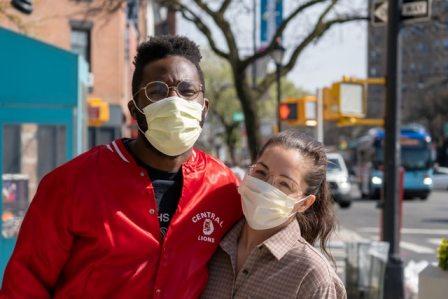
Recent data released by the Center for Disease Control and Prevention (CDC) suggests that there are significant racial and ethnic disparities in who is testing positive with COVID-19. These disparities are likely caused by the effects of long-standing social factors and largely due to workplace COVID exposure.
Data Trends
Existing studies fall into two distinct categories. One group examines the differences in the risk of infection, including where patients work and how many people are in their immediate household. The other focuses on the differences in severity of the illness and the pre-existing issues that may have caused these disparities, such as higher rates of undiagnosed illnesses in different racial, ethnic, or socio-economic groups.
In a recent report from the CDC, researchers revealed that age-adjusted coronavirus hospitalization rates of non-Hispanic black and Hispanic or Latino populations are anywhere from 2.6 to 4.5 times higher than those of non-Hispanic white populations. Though less extreme, Asian populations are 1.3 times more likely to contract COVID-19 than their non-Hispanic white counterparts.
Possible Causes
Most researchers agree that the disparities present between racial and ethnic groups in COVID-19 data are largely due to differences in workplace exposure. According to analysts from healthaffairs.gov, “given that health differences were incompatible in terms of size (and sometimes direction) with the sheer magnitude of the racial-ethnic differences in outcomes being reported, we believe that COVID-19 disparities will ultimately be shown to stem from disparities in exposure, such as the dimensions of employment and household transmission.”
Sociological pressures have historically caused many lower-income neighborhoods to house larger populations of people of color, which has limited access to quality education, resulting in lower high-school graduation rates in some areas. This has, in turn, led to many people living in these areas to accept lower-paying or less stable jobs where they may be more likely to be exposed to COVID, or who may not be financially well-off enough to call off work if they fall ill. These populations often fill essential roles, like those in healthcare or the service industry, are not often able to work from home, meaning that they could encounter a COVID-19 carrier and then pass the virus onto other members of their household.
In one CDC study conducted in UT between March and June of 2020, 210 out of 277 reported outbreaks were in workplaces. Most of these were linked to 15 specific industries; each of which boasting a high percentage of Hispanic and Latino workers. Over half of these workplace outbreaks occurred in the manufacturing, construction, and wholesale trade industries. Hispanic, Latino, and other non-disclosed, non-white workers make up 24 percent of workers in these industries, yet they account for nearly 75 percent of reported coronavirus cases included in the study.
Why the Disparities are Important to Note
This data suggests that there are still inconsistencies in the opportunities to maintain one’s health presented across varying racial and ethnic groups. It is important to note these disparities so that we can begin to remedy the situation and allow everyone the opportunity to stay safe during the COVID-19 pandemic.
Most of the research presented by the CDC largely leaves out long-term care facilities, nursing homes, and correctional facilities, which account for an estimated 43 percent of all COVID deaths in the U.S. Moving forward, healthaffairs.org suggests that further research is needed to counteract the underlying issues causing these racial and ethnic disparities in COVID-19 cases.
Health Insurance Questions?
If you are experiencing symptoms of coronavirus such as fever, cough shortness of breath, or any other symptom defined by the CDC consult with your doctor.
Stay on top of your health insurance by calling us at (844) 410-1320.
Get affordable health insurance quotes by clicking here.
See our other websites:

